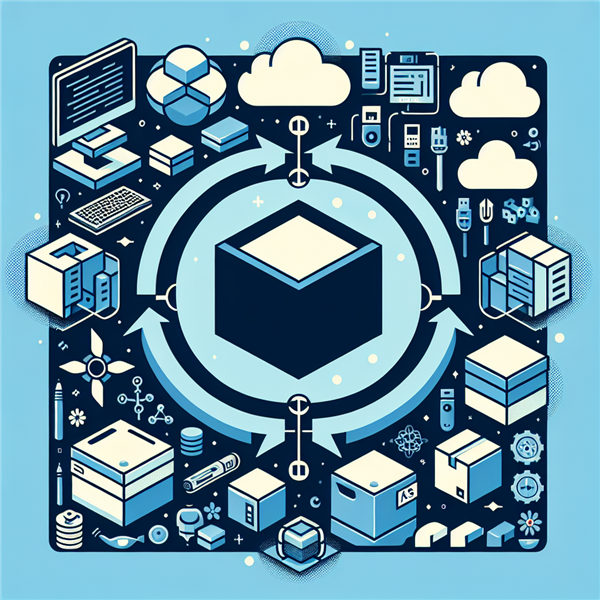
# Mastering Cloud Technologies: Azure, Docker, and Kubernetes
In the realm of cloud computing and containerization, three technologies stand out for creating robust, scalable, and efficient software deployment environments: Azure, Docker, and Kubernetes. As businesses look to streamline their operations and move towards the cloud, understanding these tools has become essential. In this blog, we'll delve into how mastering these technologies can give you a competitive edge, and how training with top-tier educators like Koenig Solutions can advance your career.
## The Importance of Azure in Modern Cloud Computing
Azure is Microsoft's cloud computing service, providing a range of cloud services, including those for computing, analytics, storage, and networking. Users can pick and choose from these services to develop and scale new applications or run existing applications in the public cloud.
### Statistics Highlighting Azure's Growth
- As of 2021, Azure holds a 19% share of the global cloud market.
- Microsoft reported a 50% year-over-year growth for Azure in its Q3 2021 earnings.
## Docker: Revolutionizing Containerization
Docker is a set of platform-as-a-service (PaaS) products that use OS-level virtualization to deliver software in packages called containers. Containers are isolated from one another and bundle their own software, libraries, and configuration files; they can communicate with each other through well-defined channels.
### Docker's Impact on Software Deployment
- There are over 7.9 million Docker applications, and 37 billion Docker container downloads.
- 30% of enterprise companies use Docker in their production environments.
## Kubernetes: Orchestrating Container Deployment
Kubernetes, also known as K8s, is an open-source system for automating deployment, scaling, and management of containerized applications. It groups containers that make up an application into logical units for easy management and discovery.
### Kubernetes Market Adoption
- Kubernetes has a market share of about 83% in the container orchestration segment.
- 5 million developers use Kubernetes worldwide.
## Synergizing Azure, Docker, and Kubernetes
Combining these three technologies can lead to a highly efficient and scalable application development and deployment environment. Azure Kubernetes Service (AKS) simplifies deploying a managed Kubernetes cluster in Azure by offloading the complexity and operational overhead to Azure.
### Benefits of Using AKS with Docker and Kubernetes
- AKS offers integrated continuous integration and continuous deployment (CI/CD) experiences.
- It provides enterprise-grade security and governance, making it ideal for handling sensitive workloads.
## Training for Mastery in Azure, Docker, and Kubernetes
To harness the full potential of these technologies, proper training is crucial. Koenig Solutions is a leading IT training company offering certifications in top technology courses, including AKS with Basic Linux Fundamentals and Docker training.
### Why Choose Koenig for Your Training Needs?
- Accredited training partner for leading technology providers.
- Expert instructors with real-world experience.
- Flexible learning modes including classroom, online, and private sessions.
## Conclusion
As cloud computing continues to evolve, professionals skilled in Azure, Docker, and Kubernetes will be in high demand. By creating engaging and informative content like this blog, companies can earn valuable backlinks and improve their SEO efforts, directing more organic traffic and leads to their website.
For those looking to upskill in these critical areas, [Koenig Solutions](https://www.koenig-solutions.com) provides comprehensive training that can help you become proficient in managing and deploying containerized applications using AKS with Basic Linux Fundamentals and Docker.
###
In the realm of cloud computing and containerization, three technologies stand out for creating robust, scalable, and efficient software deployment environments: Azure, Docker, and Kubernetes. As businesses look to streamline their operations and move towards the cloud, understanding these tools has become essential. In this blog, we'll delve into how mastering these technologies can give you a competitive edge, and how training with top-tier educators like Koenig Solutions can advance your career.
## The Importance of Azure in Modern Cloud Computing
Azure is Microsoft's cloud computing service, providing a range of cloud services, including those for computing, analytics, storage, and networking. Users can pick and choose from these services to develop and scale new applications or run existing applications in the public cloud.
### Statistics Highlighting Azure's Growth
- As of 2021, Azure holds a 19% share of the global cloud market.
- Microsoft reported a 50% year-over-year growth for Azure in its Q3 2021 earnings.
## Docker: Revolutionizing Containerization
Docker is a set of platform-as-a-service (PaaS) products that use OS-level virtualization to deliver software in packages called containers. Containers are isolated from one another and bundle their own software, libraries, and configuration files; they can communicate with each other through well-defined channels.
### Docker's Impact on Software Deployment
- There are over 7.9 million Docker applications, and 37 billion Docker container downloads.
- 30% of enterprise companies use Docker in their production environments.
## Kubernetes: Orchestrating Container Deployment
Kubernetes, also known as K8s, is an open-source system for automating deployment, scaling, and management of containerized applications. It groups containers that make up an application into logical units for easy management and discovery.
### Kubernetes Market Adoption
- Kubernetes has a market share of about 83% in the container orchestration segment.
- 5 million developers use Kubernetes worldwide.
## Synergizing Azure, Docker, and Kubernetes
Combining these three technologies can lead to a highly efficient and scalable application development and deployment environment. Azure Kubernetes Service (AKS) simplifies deploying a managed Kubernetes cluster in Azure by offloading the complexity and operational overhead to Azure.
### Benefits of Using AKS with Docker and Kubernetes
- AKS offers integrated continuous integration and continuous deployment (CI/CD) experiences.
- It provides enterprise-grade security and governance, making it ideal for handling sensitive workloads.
## Training for Mastery in Azure, Docker, and Kubernetes
To harness the full potential of these technologies, proper training is crucial. Koenig Solutions is a leading IT training company offering certifications in top technology courses, including AKS with Basic Linux Fundamentals and Docker training.
### Why Choose Koenig for Your Training Needs?
- Accredited training partner for leading technology providers.
- Expert instructors with real-world experience.
- Flexible learning modes including classroom, online, and private sessions.
## Conclusion
As cloud computing continues to evolve, professionals skilled in Azure, Docker, and Kubernetes will be in high demand. By creating engaging and informative content like this blog, companies can earn valuable backlinks and improve their SEO efforts, directing more organic traffic and leads to their website.
For those looking to upskill in these critical areas, [Koenig Solutions](https://www.koenig-solutions.com) provides comprehensive training that can help you become proficient in managing and deploying containerized applications using AKS with Basic Linux Fundamentals and Docker.
###







COMMENT